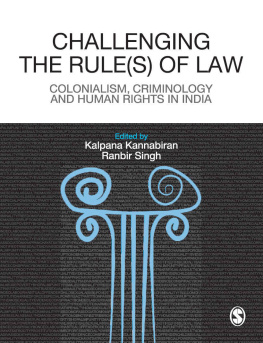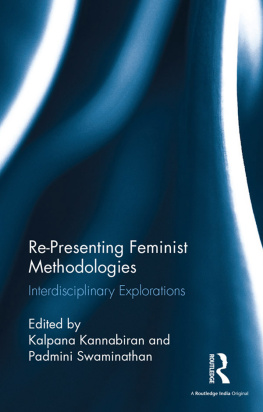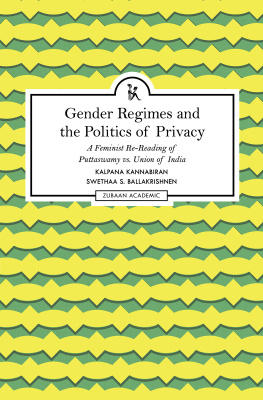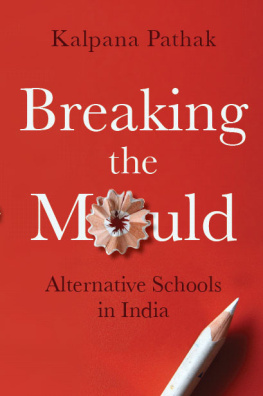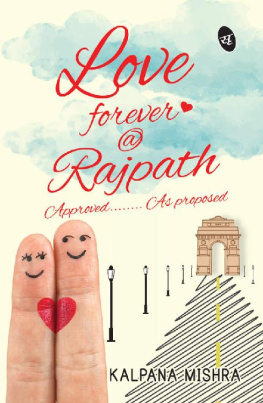Kalpana Kannabiran - Challenging The Rules(s) of Law
Here you can read online Kalpana Kannabiran - Challenging The Rules(s) of Law full text of the book (entire story) in english for free. Download pdf and epub, get meaning, cover and reviews about this ebook. year: 2008, publisher: SAGE Publications, genre: Politics. Description of the work, (preface) as well as reviews are available. Best literature library LitArk.com created for fans of good reading and offers a wide selection of genres:
Romance novel
Science fiction
Adventure
Detective
Science
History
Home and family
Prose
Art
Politics
Computer
Non-fiction
Religion
Business
Children
Humor
Choose a favorite category and find really read worthwhile books. Enjoy immersion in the world of imagination, feel the emotions of the characters or learn something new for yourself, make an fascinating discovery.
- Book:Challenging The Rules(s) of Law
- Author:
- Publisher:SAGE Publications
- Genre:
- Year:2008
- Rating:3 / 5
- Favourites:Add to favourites
- Your mark:
- 60
- 1
- 2
- 3
- 4
- 5
Challenging The Rules(s) of Law: summary, description and annotation
We offer to read an annotation, description, summary or preface (depends on what the author of the book "Challenging The Rules(s) of Law" wrote himself). If you haven't found the necessary information about the book — write in the comments, we will try to find it.
Challenging The Rules(s) of Law — read online for free the complete book (whole text) full work
Below is the text of the book, divided by pages. System saving the place of the last page read, allows you to conveniently read the book "Challenging The Rules(s) of Law" online for free, without having to search again every time where you left off. Put a bookmark, and you can go to the page where you finished reading at any time.
Font size:
Interval:
Bookmark:

Challenging The Rule(s) of Law
Challenging The Rule(s) of Law
Colonialism, Criminology and Human Rights in India
Edited by
Kalpana Kannabiran
Ranbir Singh

Copyright Kalpana Kannabiran and Ranbir Singh, 2008
All rights reserved. No part of this book may be reproduced or utilised in any form or by any means, electronic or mechanical, including photocopying, recording or by any information storage or retrieval system, without permission in writing from the publisher.
First published in 2008 by

SAGE Publications India Pvt Ltd
B1/I-1 Mohan Cooperative Industrial Area
Mathura Road, New Delhi 110 044, India
www.sagepub.in
SAGE Publications Inc
2455 Teller Road
Thousand Oaks, California 91320, USA
SAGE Publications Ltd
1 Olivers Yard, 55 City Road
London EC1Y 1SP, United Kingdom
SAGE Publications Asia-Pacific Pte Ltd
3 Church Street
#10-04 Samsung Hub
Singapore 049483
Published by Vivek Mehra for SAGE Publications India Pvt Ltd, typeset in 11/14 pt AGaramond by Star Compugraphics Private Limited, Delhi and printed at Chaman Enterprises, New Delhi.
Library of Congress Cataloging-in-Publication Data
Challenging the rule(s) of law: colonialism, crominology and human rights in India/edited by Kalpana Kannabiran and Ranbir Singh.
p. cm.
Includes bibliographical references and index.
1. Criminal justice, Administration ofIndia.2. Rule of lawIndiaHistory. 3. CrimeIndiaHistory. 4. CriminologyIndiaHistory. 5. Criminal lawIndia. 6. Human rightsIndia. 7. IndiaHistoryBritish occupation, 19651947. I. Kannabiran, Kalapana. II. Singh, Ranbir. III. Title: Challenging the rule of law.
KNS3411.C43345.54 ' 05dc2220082008031276
ISBN: 978-93-5280-123-7 (e-Pub)
The SAGE Team: Sugata Ghosh, Richa Raj, Amrita Saha, Trinankur Banerjee
Cover Conceptualised by Vishnu Mohans Sutras
for
Upendra Baxi
in solidarity
Thank you for choosing a SAGE product!
If you have any comment, observation or feedback,
I would like to personally hear from you.
Please write to me at
Vivek Mehra, Managing Director and CEO, SAGE India.
Bulk Sales
SAGE India offers special discounts
for purchase of books in bulk.
We also make available special imprints
and excerpts from our books on demand.
For orders and enquiries, write to us at
Marketing Department
SAGE Publications India Pvt Ltd
B1/I-1, Mohan Cooperative Industrial Area
Mathura Road, Post Bag 7
New Delhi 110044, India
E-mail us at
Get to know more about SAGE
Be invited to SAGE events, get on our mailing list.
Write today to
This book is also available as an e-book.

Contents
13. Revisiting Impunity and Criminality: Of Corruption, Collusion, Consequences
and Victims
16. Conspiracies of Association: Associational Offences, Associational Freedoms
and the Rule of Law
17. Of Strong Medicine and Weak Stomachs: The Resort to Enhanced
Punishment in Criminal Law in India
This collection of essays has taken us three years to complete. It was conceived as part of the project, Strengthening Criminal Justice and Human Rights in India, supported by the Ford Foundation. We are grateful to Aubrey McCutcheon and Bishnu Mohapatra for their support.
The project housed in NALSAR University of Law, Hyderabad was successfully completed because of the unstinting support of our colleagues at NALSAR. We thank every member of the faculty for making this possible.
Our contributors have made it possible for us to carry this endeavour through, with their interest, enthusiasm and good cheer. This volume developed through conversations with them. We hope that this is only the beginning of a long and fruitful partnership with the entire group.
We thank Sugata Ghosh from Sage Publications for his prompt and encouraging response and also the entire Sage team for seeing the manuscript through the press.
Finally, our sincere thanks to our families for having cheerfully borne our absence and preoccupation. Needless to say this would not have been possible without them.
Hyderabad
Kalpana Kannabiran
Ranbir Singh
Human rights movements in India have persistently interrogated systems of criminal justice in the country over the past three decades. The concerns have ranged from addressing the problem of arbitrary detention during the Emergency of 197577 to constructing entire communities as criminal, thereby justifying forced dispossession and/or mass violence. While overt violence by state actors and their complicity in violence by dominant private actors has been a major concern, there has also been the problem of abdication by the state of the responsibility to secure the right to life to a majority of the people. Immediately after the Emergency, there was a widespread acknowledgement particularly in courts, of the fact that the law is unequal especially in terms of access to and delivery of justice. The acknowledgement that this inequality negated the fundamental guarantee of equality was the direct result of struggles by democratic rights groups in different states. As more and more groups flocked to the Supreme Court to seek extraordinary remedies , transcending the received notions of separation of powers and the inherited distinctions between adjudication and legislation on the one hand and administration and adjudication on the other, for unusual problems arising from repression, government lawlessness and administrative deviance,
Through a painstaking mapping of the crisis in the legal system in India, and comparative analyses of constitutionalism and the rule of law, Upendra Baxi sets up several signposts, which would be productive to recall at the beginning of this volume. A cursory examination of Baxis work points us to the different levels at which his work has been relevant to an understanding of human rights and criminologyin judicial decision making, advocacy, resistance politics and theory. The authorship of the essays contained here mirrors this diversity in his engagement with law. The first part of this brief introduction will sketch, in a somewhat arbitrary fashion, a small part of Baxis writing on the concerns voiced in the chapters in this volume. The second part will outline the scheme of this collection.
There is the third situation where the law is neither a crooked mirror, nor the basis for denial of rights and dignity, it rather defines the constitutive basis of equality and non-discrimination. The Indian Constitution prohibits practices of untouchability, agrestic serfdom and trafficking in human beings. And yet, there is extensive documentation of the ways in which gross violations continue, finding their justification in civil society and culture. Anticipating the questions raised by human rights movements and anti-caste movements that drew international attention to the specific practices of caste discrimination within the framework of the UN Convention on the Elimination of All Forms of Racial Discrimination, Baxi asks, if over a period of time the State policies do not become effective, even at a minimal level, should this amount, under the definitional formulation, to a violation of international law? If ameliorative measures require resources at desired levels and a State fails to raise or provide these, should this be considered among encouraging or condoning practices? ...[S]hould in principle the failure of the State to cope with repressive cultures and social structures with expedition be considered a violation of international law? If so designated, what consequences may follow?
Font size:
Interval:
Bookmark:
Similar books «Challenging The Rules(s) of Law»
Look at similar books to Challenging The Rules(s) of Law. We have selected literature similar in name and meaning in the hope of providing readers with more options to find new, interesting, not yet read works.
Discussion, reviews of the book Challenging The Rules(s) of Law and just readers' own opinions. Leave your comments, write what you think about the work, its meaning or the main characters. Specify what exactly you liked and what you didn't like, and why you think so.

